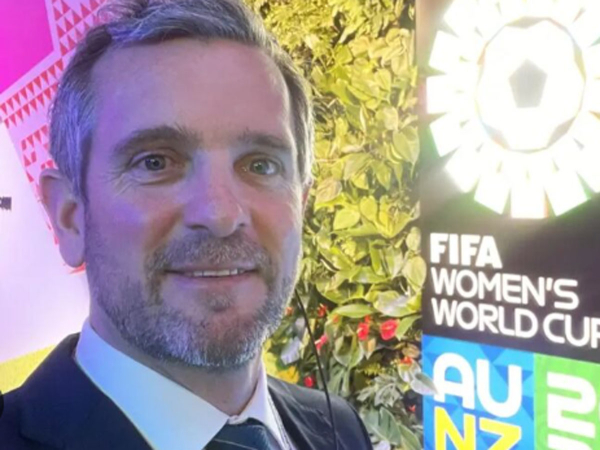[ad_1]

Environment
Our cars are killing us through road deaths and pollution. Decreasing the number of cars on the roads reduces greenhouse gas emissions, improves community wellbeing, and promotes physical activity
Opinion: Air quality is not typically an issue at the forefront of people’s minds in New Zealand, but it should be, and our politicians should be talking about it in the run up to the election. With over 90 percent of people living in Auckland exposed to air pollution at levels higher than the recommended maximum limit set by the World Health Organisation (WHO), the clean, green image of New Zealand is becoming increasingly obscured in smog.
And New Zealanders are dying. A report published in 2022 showed that more than 3,300 people in New Zealand prematurely died in 2016 alone because of air pollution, equalling almost one in ten of all deaths nationwide. Compare that with the few hundred deaths a year from road accidents, and you have a significant and under-appreciated problem.
READ MORE:* Auto industry calls for stricter air pollution tests* Crackdown on diesel pollution could save billions
In addition, air pollution was responsible for more than 13,000 hospital admissions, 13,000 cases of childhood asthma, and 1.75 million days on which people could not do what they might otherwise have done if air pollution had not been present. Children and older people are especially vulnerable to the impacts of air pollution.
There are pockets in Auckland where air pollution levels exceed the WHO limits by more than three times, such as in the city centre around Queen St and Customs St
In my early career as a doctor working in the hospitals, I saw the real everyday impacts of our polluted environment on the health of New Zealanders. Now, I work as a public health doctor to address the upstream causes of disease as part of a coalition seeking to make Tāmaki Makaurau a healthier place to call home.
We all deserve a healthy environment to work, play and live within.
Across New Zealand, most of our air pollution comes from our roads. Our cars are killing us, in more ways than one. Motor vehicles were the largest contributor to air pollution-related health impacts in New Zealand in 2016, causing more than 2,200 deaths. Most of the motor vehicle-related deaths were because of nitrogen dioxide, with a smaller number due to PM2.5, microscopic particles mainly produced by combustion engines and easily inhaled. They can enter deep inside our lungs and cross over to our bloodstream, increasing the risk of diabetes, strokes, heart and lung disease, cancer, and dementia.
There are pockets in Auckland where air pollution levels exceed the WHO limits by more than three times, such as in the city centre around Queen St and Customs St, making exposure highly inequitable. Often lower socioeconomic housing surrounds the main transport arteries. People living in urban areas with high air pollution levels should not have to breathe in other people’s exhaust fumes.
Vehicles imported into New Zealand have not been keeping up with international vehicle emissions standards, so we have become a global dumping ground for hazardous smog-producing cars, vans and buses
We need a society-wide approach to ensure our air stays safe for all people across all communities. There are effective ways to do this that have shown promise in places overseas, such as road pricing through fuel taxes or duties. During this election cycle, we must call on our politicians to address the neglected air pollution problem and create healthy urban environments that allow everyone to live in neighbourhoods with clean air.
Healthy Auckland Together has proposed a set of policy recommendations that can reduce the impact of air pollution in Tāmaki Makaurau and New Zealand as a whole that are easy to implement and cost-effective.
For one, vehicles imported into New Zealand have not been keeping up with international vehicle emissions standards, so we have become a global dumping ground for hazardous smog-producing cars, vans and buses.
Updating the land transport rule to allow only low-emissions vehicles to be imported into New Zealand has been estimated to provide social benefits valued up to $8.3 billion with an almost 50 times return on the potential cost of the policy. The government has recently concluded a consultation to review this policy, meaning progress is being made, but we must ensure this legislation passes to prevent the lock-in of more harmful vehicles.
In addition, we need to revise national and local guidelines to keep up with the most up-to-date evidence. In 2021, the WHO released new guidelines that reduced the maximum safe level of PM2.5 and nitrogen dioxide. The correct guidelines are essential to encourage action and ensure accountability for keeping our air clean.
Moreover, other countries such as the UK have shown how effective congestion pricing schemes and low emissions zones can be in reducing air pollution and traffic. For example, ultra-low emissions zones have reduced pollution levels in inner London by 21 percent. To realise this in New Zealand, the government must first legislate to give councils power to implement congestion pricing. In doing so we can all reap the benefits of faster commuting times, healthier neighbourhoods, and greater community connectedness, all while addressing ballooning council budgets.
Investing in alternative electric mobility and public transport are also obvious solutions. Though there has been an increase in the uptake of electric vehicles in New Zealand, a subsidy on e-bikes, similar to the Clean Car Discount, could go a long way to more equitably reduce emissions. Several studies have shown that e-bike users reduce their care mileage by over 20 percent. Imagine if one in five cars were taken off Auckland’s roads!
As we know, the benefits of changing our transport system go far beyond the health impacts of air pollution. Decreasing the number of cars on the roads reduces greenhouse gas emissions, improves community wellbeing, and promotes physical activity, further improving health.
In reality, a multi-pronged approach is needed, and these suggestions are just the start. International examples show that it can be done. For a healthy, thriving country, we should demand our politicians take responsibility and put in place policies that curb our addiction to cars. Not just for the future of the planet, but to save lives in our communities now.
Noah Bunkley is part of Healthy Auckland Together, a coalition of 25 organisations working to make Tāmaki Makaurau a healthier place to call home.
[ad_2]
Source link





















